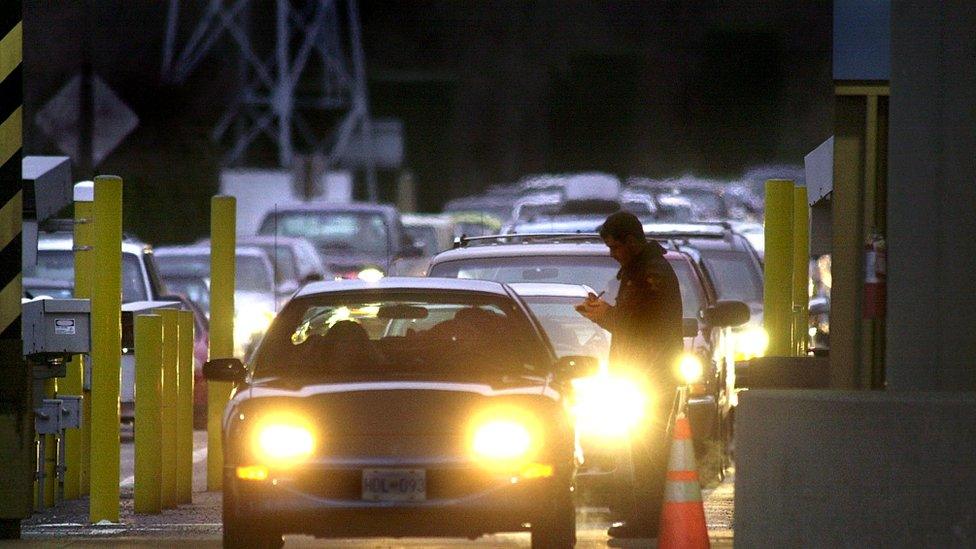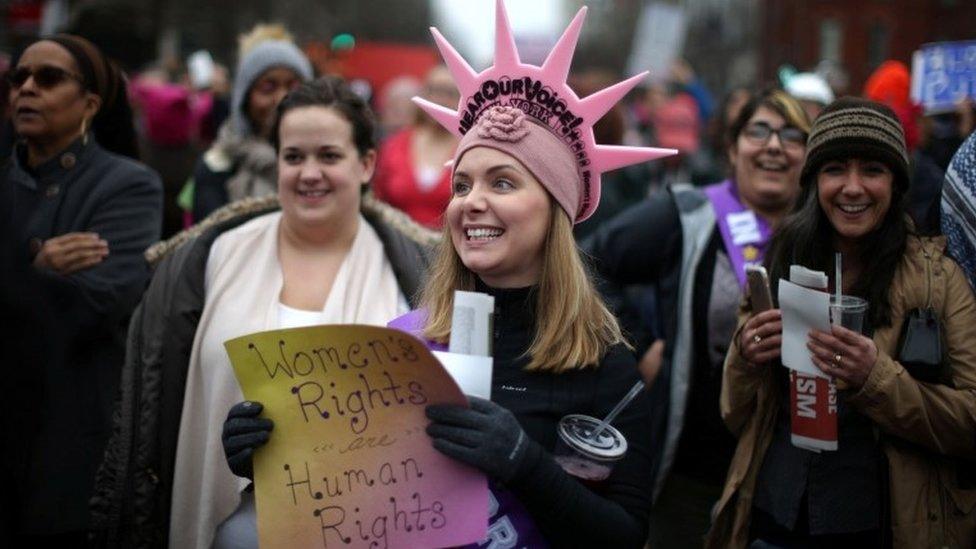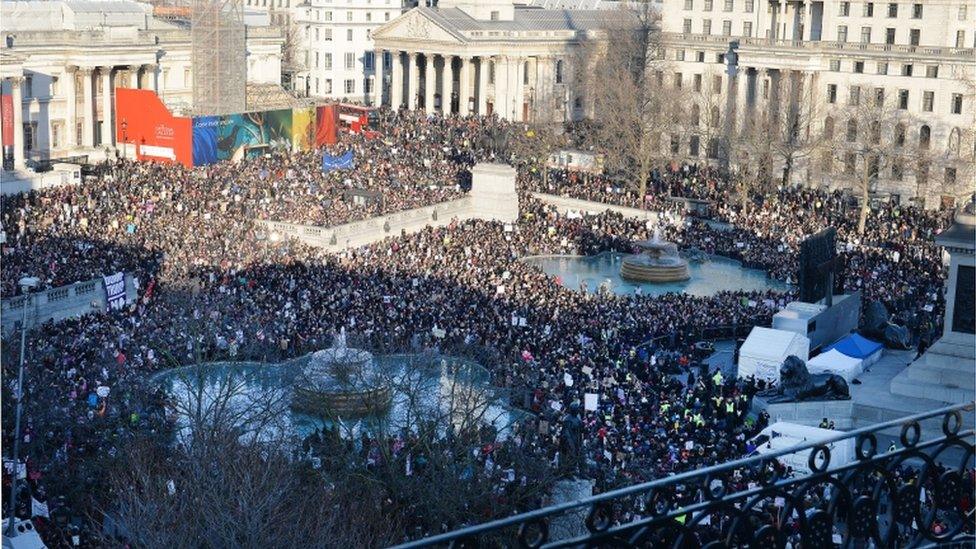Protesters from Canada, UK, 'turned away at US border'
- Published

A handful of Canadians on their way to the Washington rally say they were barred entry to the US
A handful of protesters heading down to the massive women's rights rally in Washington say they were turned away at the US border.
A few also report being questioned before reluctantly being allowed into the US.
Hundreds of Canadians travelled to the US to participate in the Women's March on Washington.
Thousands more are taking part in companion rallies planned in cities across the country.
Sasha Dyck will be marching in Montreal after he and seven others were turned away by US officials at the Lacolle border crossing between the province of Quebec and New York State.
The 34-year-old Montrealer say they told border agents they were heading to the Washington rally.
"We were told to pull aside, cars were searched, we were fingerprinted and photographed, they confiscated our phones and asked us to unlock them," he told the BBC.
"They asked us a few questions, about whether we there to disrupt or anything like that but mostly had to stew for about two hours and then they told us: 'You're going home, going back to Canada.'"
He said they were not given a reason for being turned away. He also said two companions who were French nationals were told that for any subsequent trips to the US they would need visas.
"I had a feeling they didn't like the look of us, just thought we would be a hassle, that it would be easier to turn us back," he said.
Joe Kroese, a 23-year-old UK national studying in Montreal, said he had a similar experience at the border.
He says that he, two Americans, and a Canadian tried to cross the border on Thursday with plans to spend the night in New York and then likely go to DC for the march on Friday.
Mr Kroese said they did not initially tell the border agents they were planning to attend the protest but were clear about their intentions when asked for more information.
"That was when the vibe totally changed," he said.
He said border agents wanted to know why they wanted to attend the DC march and searched through his phone.
"They were trying to find stuff to, I guess, show we had some violent intent," he said.
Mr Kroese and his Canadian friend were both denied entry after about three hours at the border crossing. He says he was told he was turned away because of his plans to attend the Washington rally and because he did not immediately disclosed his intent to travel to the march.
The student was also told he would now need a visa to enter the US.
Joseph Decunha, a 20-year-old Montrealer, was also turned back at the Lacolle crossing. He said he was asked specifically if he, his partner and a friend supported or opposed Trump.
"We were forthcoming and explained we were quite vehemently anti-(Trump)," he told Reuters.
US Customs and Border Protection has said it was not at liberty to discuss individual cases.
An Ontario couple, Amber Gazdic and husband Chris Bolestridge, told the CBC , externalthey were pulled aside at the Niagara Falls border crossing and told "that, as Canadians, we had no right to go and participate in this march".
Ms Gazdic said: "It's none of our business, and Canada has its own problems we should address. The impression that we got was that they were looking for a reason to not allow entry."
The couple were eventually allowed to cross after an hour of questioning.
It is not unprecedented for travellers crossing into the US or Canada Canada to have their phones searched.
In a statement, Canada's federal Public Safety Minister Ralph Goodale said that, when entering another country, it has always been the case that goods accompanying a traveller may be searched to verify admissibility.
He also said he was unable comment on the operational matters of either Canada's or other countries' border agencies.
- Published21 January 2017

- Published21 January 2017
